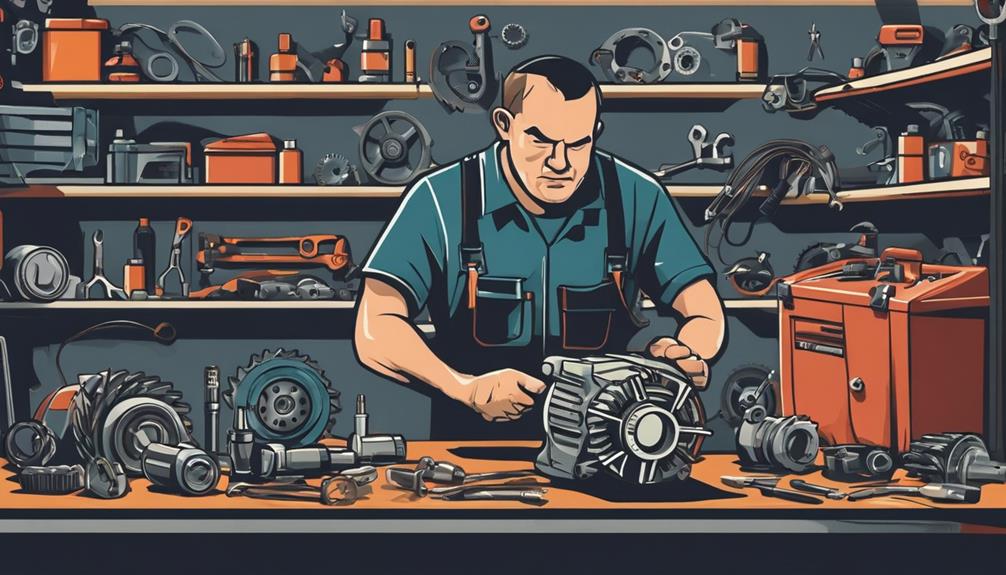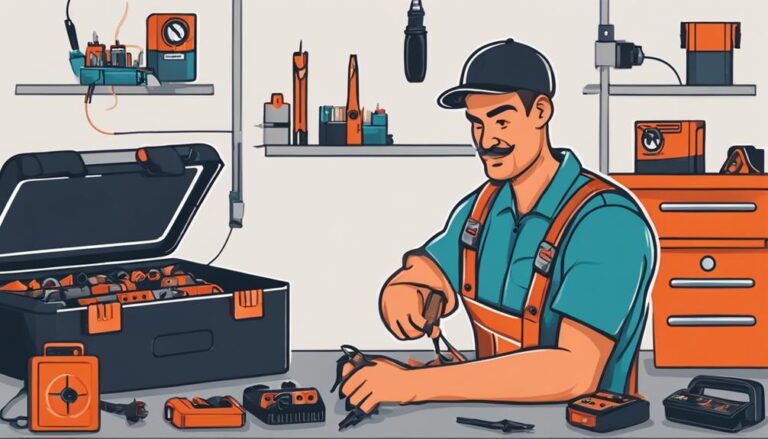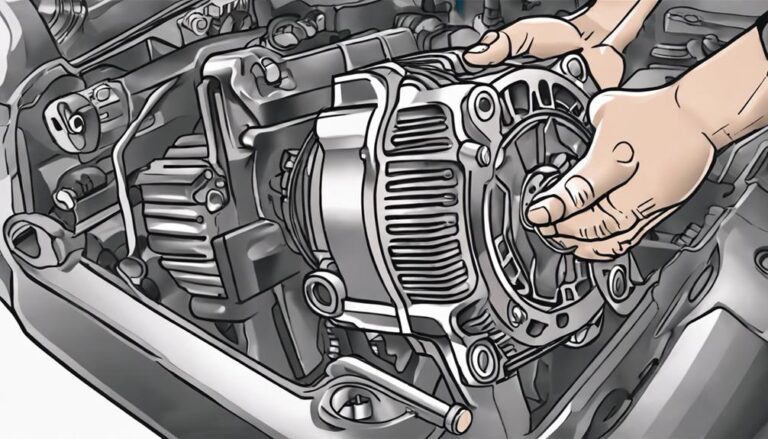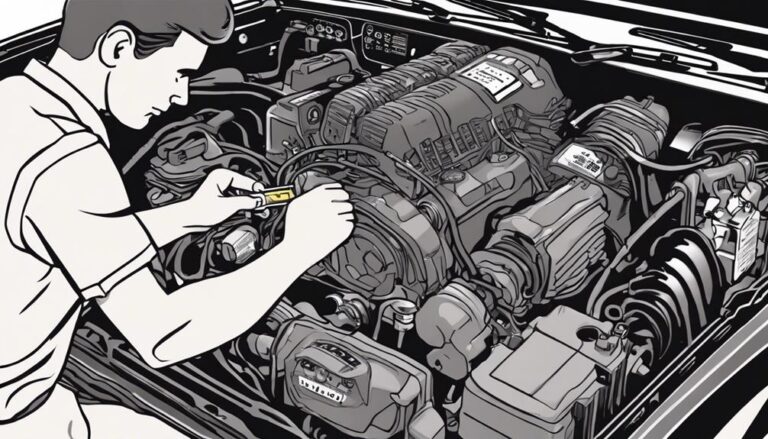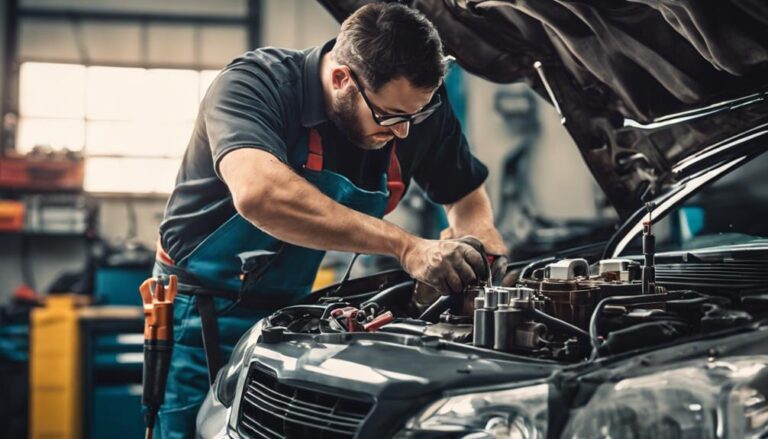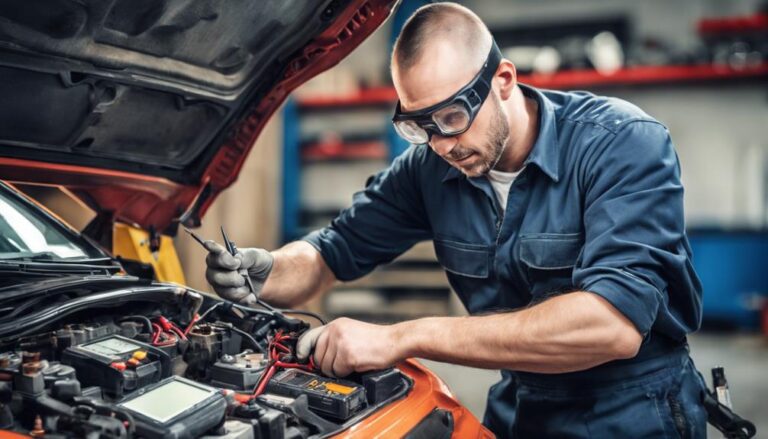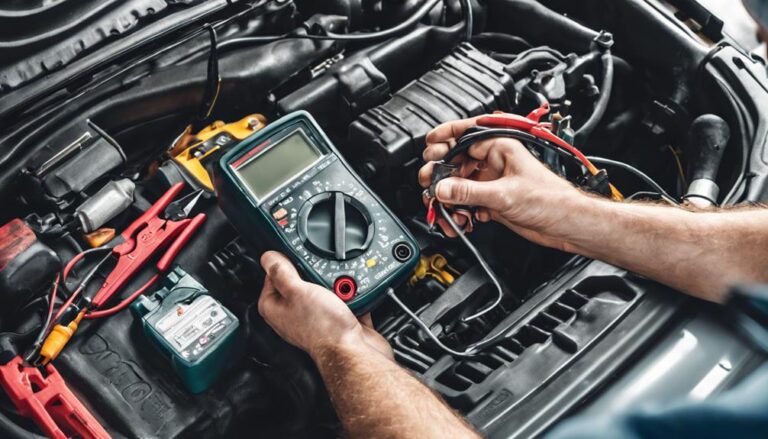What Are Best Alternator Repair Techniques?
When faced with alternator issues, you might feel overwhelmed by the array of repair techniques available. From simple fixes like checking the belt to more complex tasks involving component replacements, determining the best approach can be intimidating.
However, understanding the most effective strategies for alternator repair is important for maintaining your vehicle's electrical system's health and ensuring best performance. Whether you're a seasoned DIY enthusiast or a novice looking to learn more, uncovering the best alternator repair techniques can save you time, money, and potential headaches down the road.
Key Takeaways
- Thoroughly inspect alternator belt, battery terminals, and electrical connections for wear or damage.
- Use a multimeter to test alternator output voltage accurately.
- Address worn-out components like diodes, voltage regulator, and brushes promptly.
- Seek professional help for efficient diagnosis and repair to ensure proper alternator functioning.
Diagnosing Alternator Issues
To diagnose alternator issues effectively, begin by meticulously inspecting important components such as the alternator belt and battery terminals for signs of wear or damage. The alternator belt plays a vital role in the charging efficiency of the alternator. Check for any wear, cracks, or fraying that may hinder its performance. Similarly, examine the battery terminals for any corrosion buildup or loose connections that could disrupt the power flow between the battery and the alternator.
Utilize a multimeter to conduct thorough testing of the alternator output voltage. This step is essential in determining if the alternator is functioning correctly. Turn on various electrical accessories in the vehicle to make sure that the alternator can handle the load without any issues. Keep an eye out for low voltage readings during this process, as they may indicate underlying alternator problems that require immediate attention.
Repair Techniques for Alternators
Inspecting the alternator components thoroughly is the initial step in effectively addressing alternator repair techniques. To guarantee peak performance, consider the following repair techniques:
- Replace faulty components: Address issues by replacing faulty diodes, voltage regulator, or brushes that may be causing the problem.
- Utilize a multimeter: Test the output voltage using a multimeter to accurately diagnose specific issues and determine the health of the alternator.
- Clean and secure electrical connections: Enhance performance by cleaning and tightening all electrical connections to assure a steady flow of electricity.
- Consider rebuilding: For a cost-effective solution, think about rebuilding the alternator with new components to extend its lifespan.
- Seek professional assistance: When dealing with complex repairs or replacements, it's advisable to seek professional help to make sure the alternator is serviced correctly.
Alternator Maintenance Tips
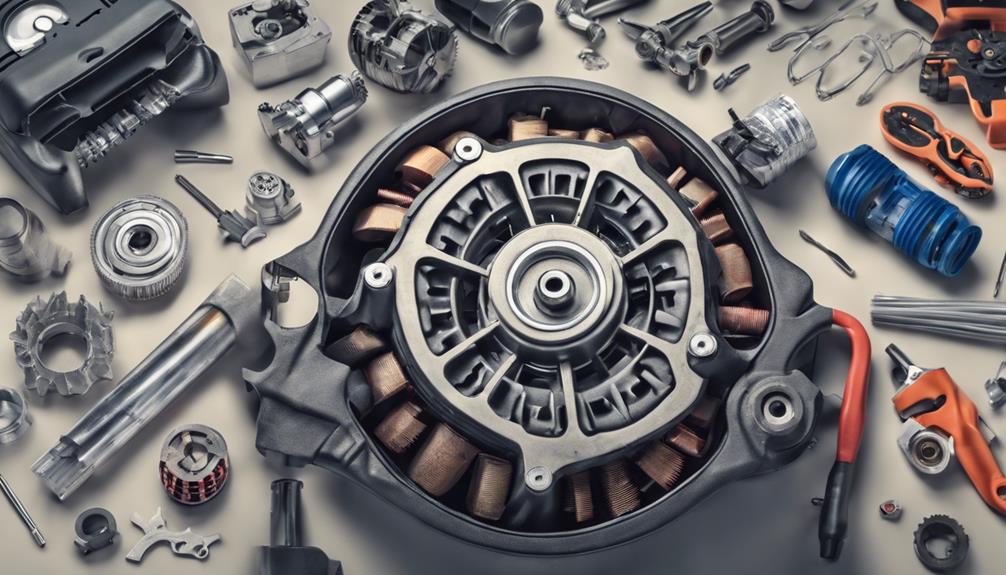
Regularly checking the alternator for wear or damage is important to maintaining its best performance. Make sure the alternator belt tension is correct and that cooling vents are clear to promote efficient operation. Periodically test the alternator output to detect any potential issues that could impact its charging capability.
Promptly address any electrical problems to prevent unnecessary strain on the alternator system. Common maintenance tasks include inspecting for worn-out brushes, preventing overcharging, avoiding belt slippage, and managing terminal corrosion.
Signs You Need Alternator Repair
If you notice flickering dashboard lights or dimming headlights, these are common indicators that your alternator may be in need of repair. Pay attention to these warning signs of alternator failure to avoid further issues.
Here are some key signs you need to know:
- A dead battery, especially after a jump start, can signal an issue with the alternator not charging the battery.
- Strange noises like grinding or whining coming from the alternator area may indicate mechanical problems requiring repair.
- Watch out for warning lights on your dashboard that specifically indicate alternator problems.
- A loose or damaged alternator belt can cause issues with charging the battery, leading to the need for repair.
- To accurately diagnose the failing alternator, a professional auto mechanic may use a multimeter to test the charging system.
When to Seek Professional Help
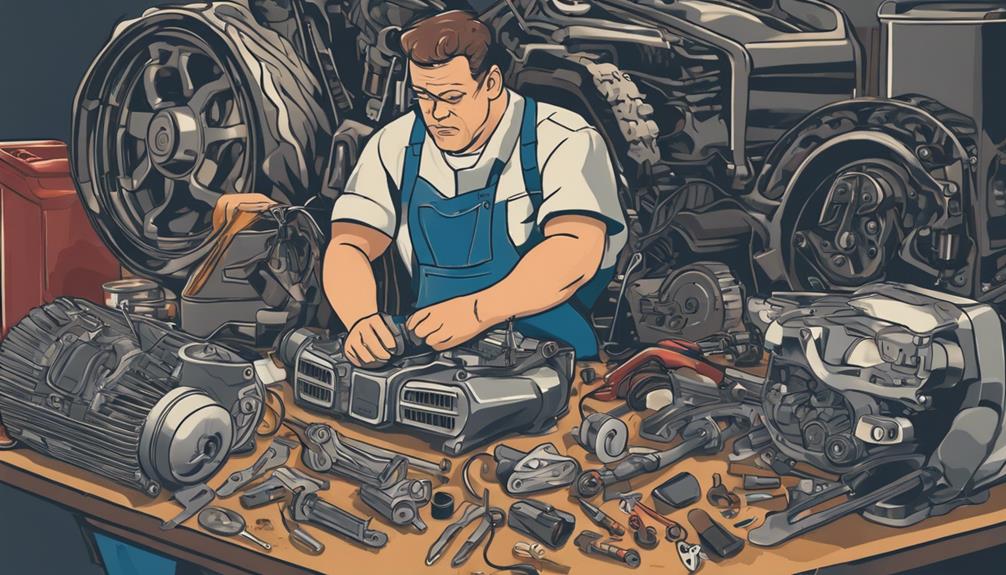
If you encounter alternator problems that exceed basic troubleshooting measures, it's wise to seek out the expertise of a certified auto mechanic for efficient diagnosis and repair. A professional mechanic can accurately diagnose alternator issues, ensuring that the root cause of the problem with your alternator is identified correctly.
When facing a situation where your alternator isn't charging the battery or you suspect a weak battery due to alternator issues, consulting a local auto mechanic is essential. They've the necessary skills to check the alternator thoroughly and determine if repairing your alternator is possible or if you need to replace it altogether.
Professional help is recommended to ensure that the alternator problem is addressed correctly, avoiding further damage to your vehicle. By entrusting the task to a certified mechanic, you can be confident that the best course of action for replacing your alternator will be taken, ensuring top-notch performance of your vehicle's electrical system.
Frequently Asked Questions
How Do You Fix a Bad Alternator?
When your alternator goes bad, fix it by replacing worn-out parts like brushes, voltage regulator, or diodes. Troubleshoot with a multimeter, check connections, and act fast on dimming lights. DIY if you can, but seek professional help for severe damage.
Can Alternator Be Repaired?
Yes, alternators can be repaired by replacing faulty components like diodes, voltage regulators, and brushes. Regular maintenance, inspections, and timely repairs can extend the alternator's lifespan. Professional mechanics can assist with diagnosis and repair techniques.
What Is the Most Common Failure of the Alternator?
The most common failure of an alternator is worn-out brushes. This can lead to electrical contact issues, impacting the performance of components like the voltage regulator, diode rectifier, and terminal connections. Regular maintenance can prevent these problems.
How Do You Start a Car With a Bad Alternator?
In an emergency situation with a bad alternator, jump-start your car using another vehicle's battery power. This temporary fix provides enough juice to start your engine. Remember, it's essential to seek professional help for alternator repair to maintain vehicle safety and proper car maintenance.
Conclusion
To conclude, proper alternator repair techniques are crucial for maintaining vehicle performance.
Did you know that a faulty alternator is one of the top reasons for vehicle breakdowns, accounting for about 8% of all breakdowns?
By diagnosing issues early, performing necessary repairs, and following maintenance tips, you can make sure your alternator functions at its best and avoid costly repairs down the line.
Remember to seek professional help if needed to keep your vehicle running smoothly.

